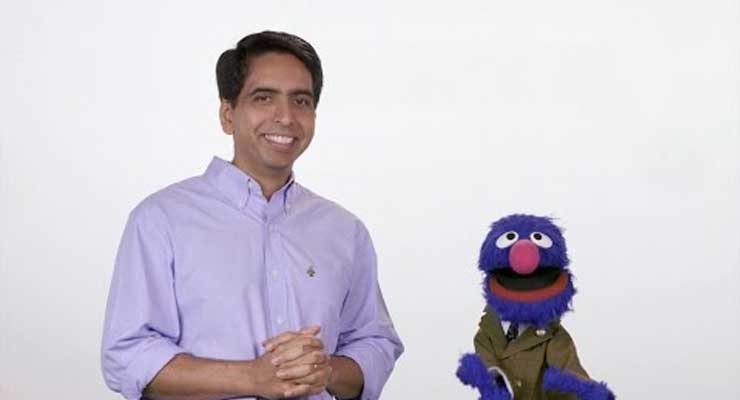
Sal Khan helps our favorite Sesame Street character understand how we elect the president of the United States. Check out more lessons about American civics on Khan Academy at https://www.khanacademy.org. And vote November 8 if you’re eligible!
About Khan Academy:
Khan Academy offers practice exercises, instructional videos, and a personalized learning dashboard that empower learners to study at their own pace in and outside of the classroom. We tackle math, science, computer programming, history, art history, economics, and more. Our math missions guide learners from kindergarten to calculus using state-of-the-art, adaptive technology that identifies strengths and learning gaps. We’ve also partnered with institutions like NASA, The Museum of Modern Art, The California Academy of Sciences, and MIT to offer specialized content.
otto says
The National Popular Vote bill is 61% of the way to guaranteeing the presidency to the candidate who receives the most popular votes in the country, by changing state winner-take-all laws (not mentioned in the U.S. Constitution, but later enacted by 48 states), without changing anything in the Constitution, using the built-in method that the Constitution provides for states to make changes.
Every vote, everywhere, for every candidate, would be politically relevant and equal in every presidential election.
No more distorting and divisive red and blue state maps of predictable outcomes.
No more handful of ‘battleground’ states (where the two major political parties happen to have similar levels of support among voters) where voters and policies are more important than those of the voters in 38+ predictable states that have just been ‘spectators’ and ignored after the conventions.
The bill would take effect when enacted by states with a majority of the electoral votes—270 of 538.
All of the presidential electors from the enacting states will be supporters of the presidential candidate receiving the most popular votes in all 50 states (and DC)—thereby guaranteeing that candidate with an Electoral College majority.
The bill was approved this year by a unanimous bipartisan House committee vote in both Georgia (16 electoral votes) and Missouri (10).
The bill has passed 34 state legislative chambers in 23 rural, small, medium, large, red, blue, and purple states with 261 electoral votes.
The bill has been enacted by 11 small, medium, and large jurisdictions with 165 electoral votes – 61% of the way to guaranteeing the presidency to the candidate with the most popular votes in the country
NationalPopularVote